
ForFarmers animal feed business uses Actros with Fleetboard
Economics & Logistics
That's the slogan of ForFarmers. Logistics manager Frank van Kerkhof gives the low-down on the animal feed sector, and explains how important the Actros and FleetBoard are to the company.
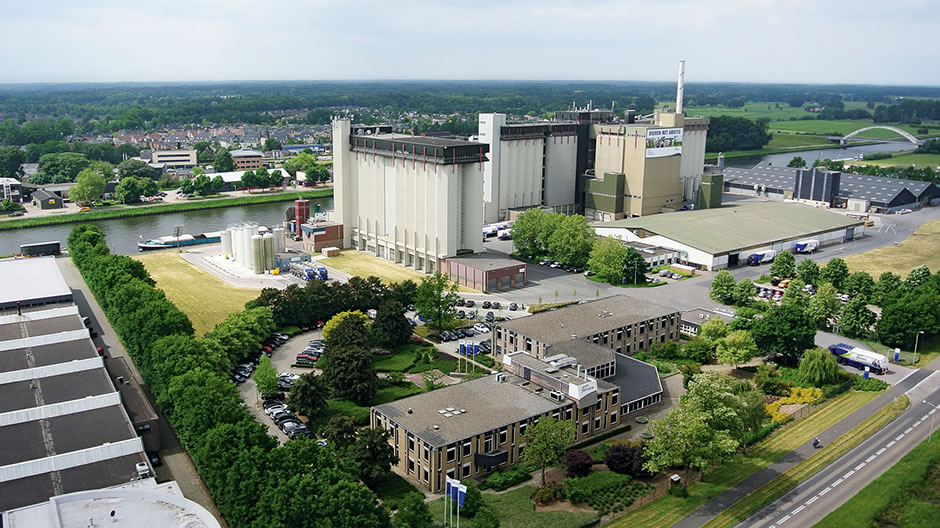
ForFarmers handles 8.9 million tonnes of animal feed a year – the company succeeds in a declining market thanks to its sophisticated logistics.
“Basically, we are operating in a declining market,” says Frank van Kerkhof, logistics manager at the ForFarmers Group. “But we are used to being faced with certain challenges.” His company is an international operation specialising in conventional and biological feed for livestock farming, but it also supplies trade products for farming and grazing and offers its clients expertise and advice in the fields of nutrition, livestock farming and business development. “We started out as a farmers' cooperative in the Achterhoek region of the Netherlands, which was originally founded to pool purchasing power. This later grew into ForFarmers, and we now have branches in England, Germany and Belgium too.”
Operating in a market with tight margins means Frank van Kerkhof and his team have to overcome even tougher logistical challenges: “Needless to say, we strive to make all processes as efficient as possible. As a result, we have implemented some major changes over the past years, for example in our planning model. This was because the routes of the trucks from our fleet's different locations overlapped, meaning that the vehicles were not being deployed to optimum effect. The drivers from the various regions encountered each other out on the road, so to speak, said a quick hello, then continued on their way. The obvious solution seemed to be to dispense with the regional planning and control everything centrally.”

But then the specialists at ForFarmers explored the matter a little further and discovered there was an important reason for applying the existing method. “Coordinating production and transport calls for absolute precision, especially when there is a large number of short trips in the region,” explains Van Kerkhof. “If these trips are planned centrally, you can no longer stay in close contact with the region. So, we had to think long and hard about it. The solution was a hybrid model, which offers the best of both worlds: planning is carried out locally where possible, and the locally planned trips are intelligently combined with one another centrally.”
This means that the fleets with overlapping routes could be reduced in size. At the same time, the handling volume increased without upsetting the finely tuned coordination between production and transport. “All our local and central planners work in the same transport management system, meaning everyone can see what their colleagues are doing,” says Van Kerkhof. “This hybrid model works brilliantly, and we save a great deal of money on logistics costs. What's more, the empty runs in the Netherlands are reduced to an absolute minimum in this way.”

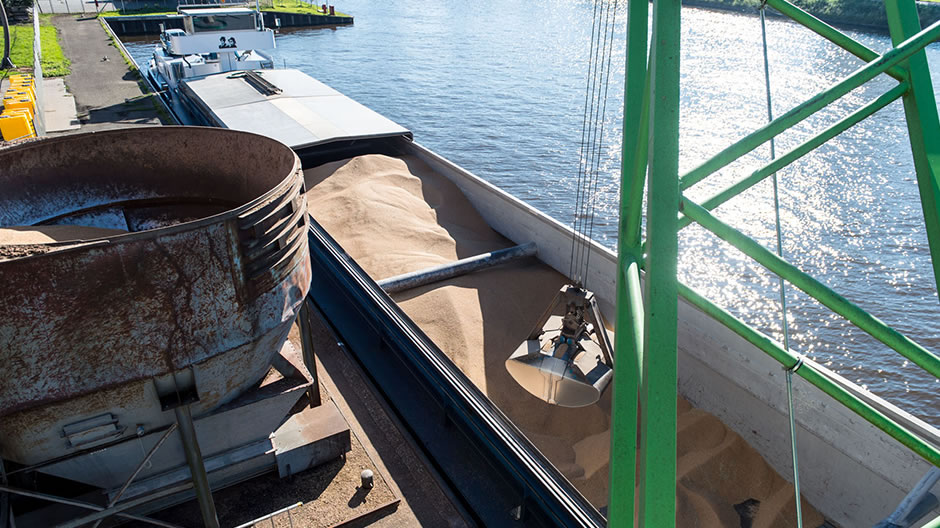
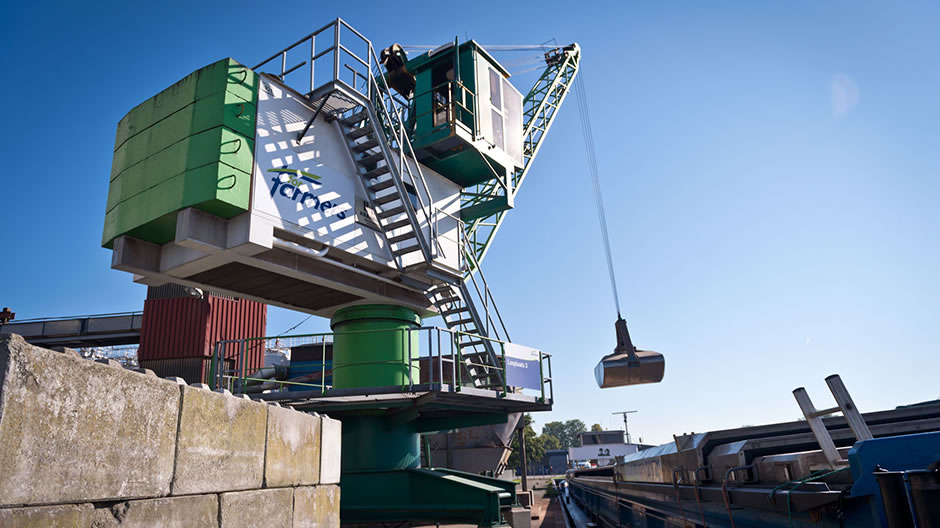
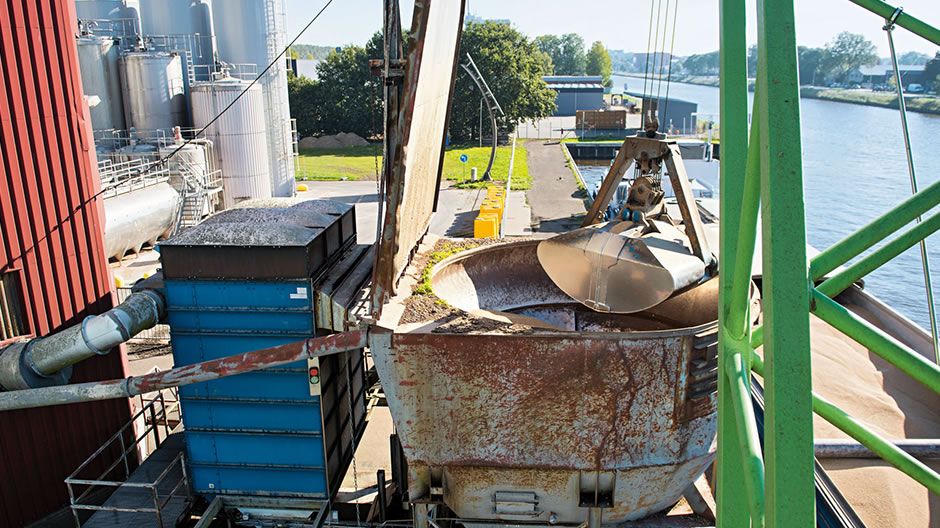
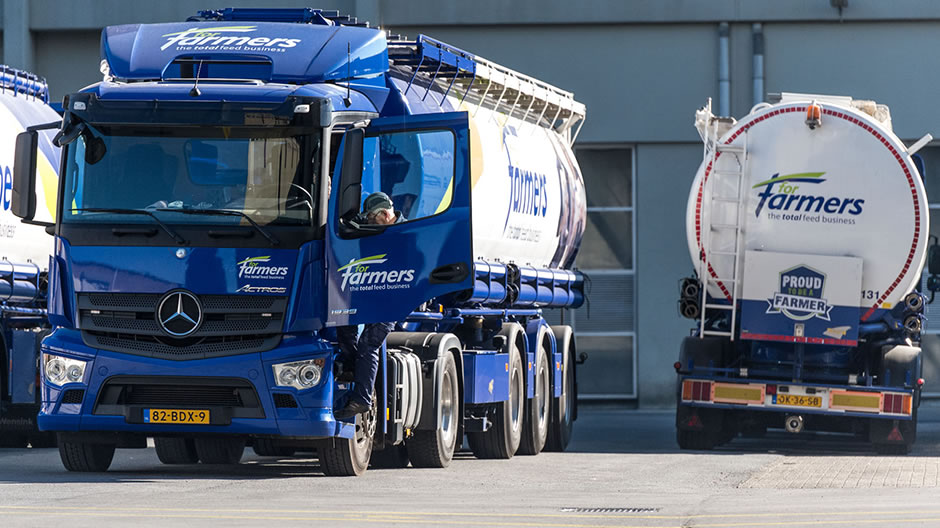
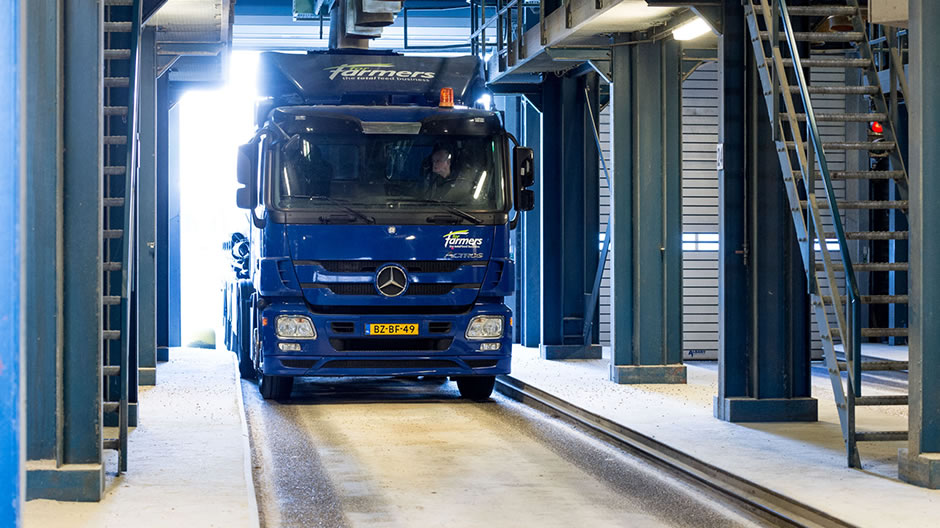
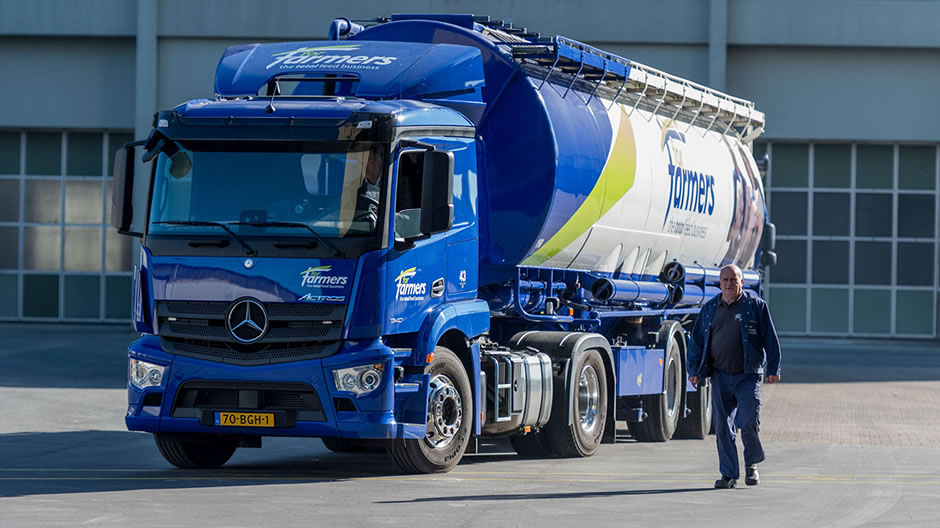
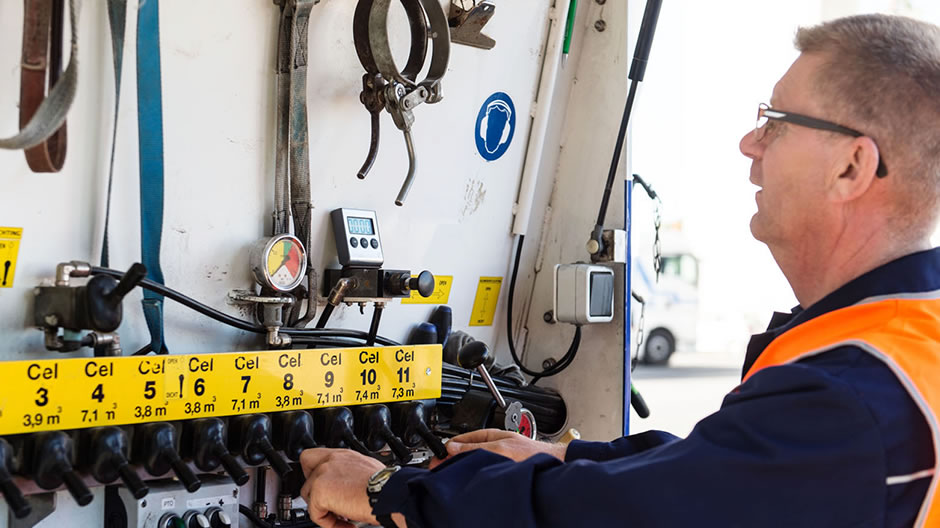
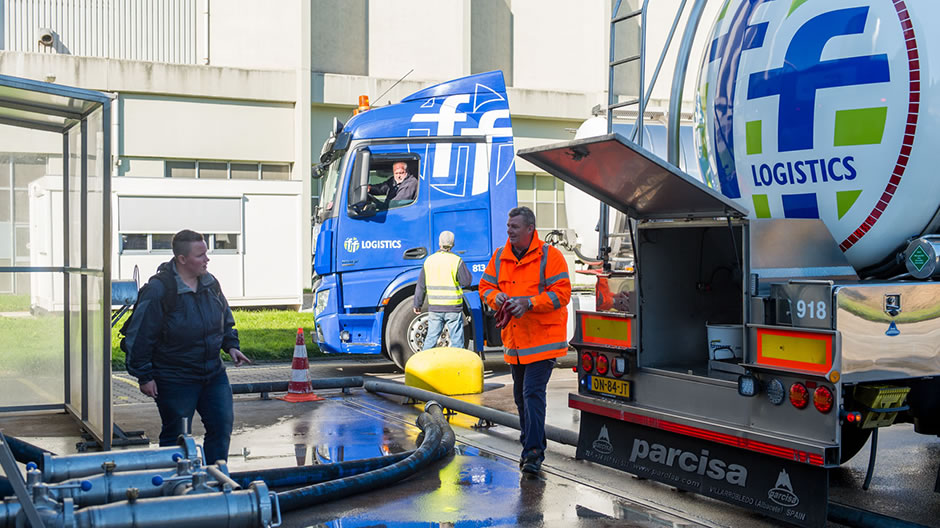
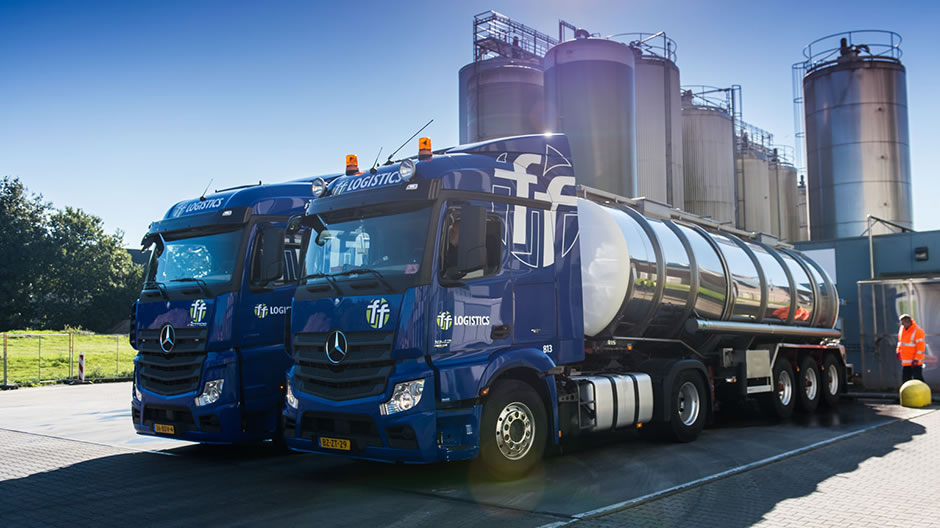
FleetBoard supports the company in its quest to keep streamlining its logistics. “We use SAP for almost everything we do, and fortunately it can be combined with FleetBoard to great effect,” explains logistics specialist Van Kerkhof. “We control the orders for our drivers via FleetBoard, for example, and we link up the time logs with our payroll accounting. The driving analysis function furthermore helps us to cut fuel consumption, by doing things such as making it into a sort of contest with our FleetBoard Drivers’ Challenge. This helps us meet our objective of reducing fuel consumption and transporting animal feed in a sustainable manner.”
Another important consideration for Frank van Kerkhof is the reliability of FleetBoard, especially with a view to its future availability: “We don't want to run the risk of introducing a system that is later withdrawn from the market. And I know that I can depend on Daimler in this regard.”
The ForFarmers fleet comprises around 320 of its own trucks, a third of which were supplied by Mercedes-Benz. Van Kerkhof: “This year we are putting 29 Actros trucks into service, 16 of which will be operating in England. We were keen to do this as part of a corporate deal, and Mercedes-Benz Netherlands was very willing to give us the advice we needed and consider aspects that went beyond the country's borders. We received excellent support, for example with applying for vehicle registration in England. England was incidentally a great test case for the quality of the trucks, the dealer network and the FleetBoard Service and Uptime modules. When a truck develops a fault, it is assigned the status Vehicle off Road, or VOR for short – in this case, the fault must be fixed before the truck can start operating again.”
Up to this point, ForFarmers had not deployed its Mercedes-Benz trucks in England. “To our great annoyance, in 2015 the number of VOR days in England reached 1000 in just the first five months. This is basically the equivalent of three vehicles being out of action for a whole year. We believe we can reduce this number substantially with Mercedes-Benz, and this conviction was one of the reasons behind the switch. Thanks to the quality of the vehicles and the optimum maintenance planning using FleetBoard, it should be possible to reduce the number of VOR days to a maximum of 20 per month. In other words, around 200 VOR days a year, instead of 1000 in less than half a year. In Mercedes-Benz, we have found a partner which seeks to provide complete solutions and is dedicated to helping us reach our targets.”
Photography: MCR
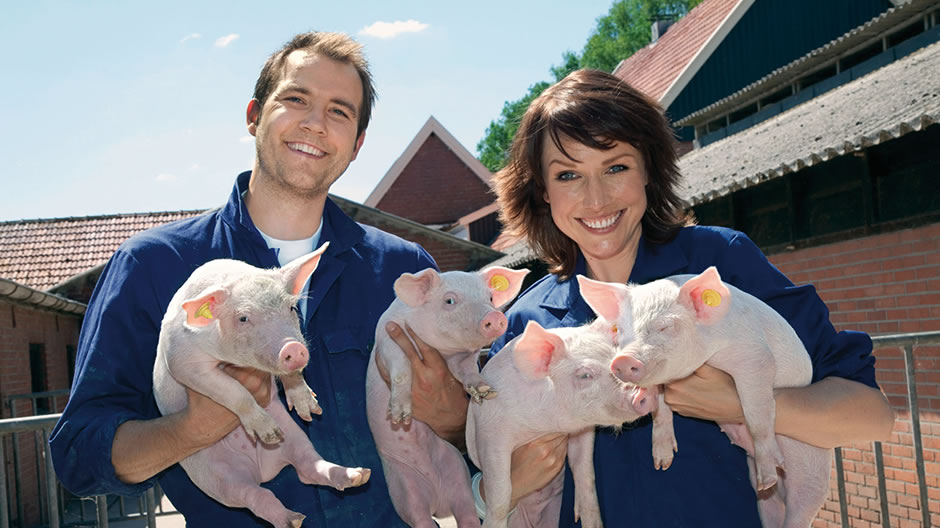



Comment
Please log in to post a comment.
1 comment